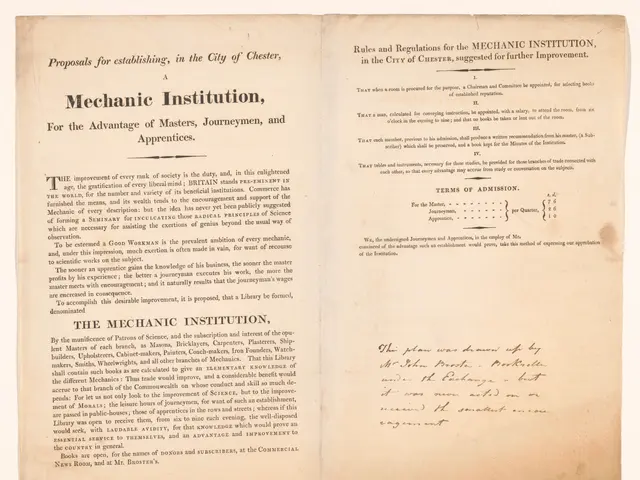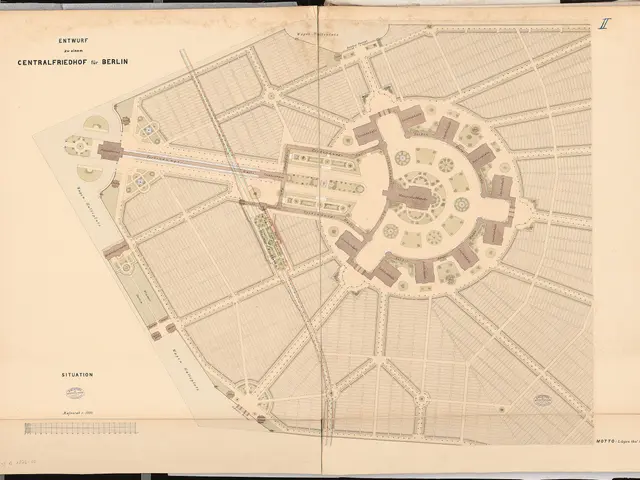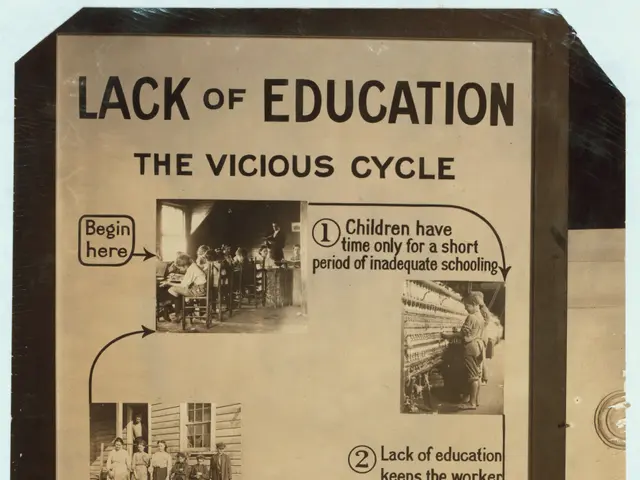Renewing the Renewables: Bavarian Government Ponders Reversal on Citizen Participation in Green Energy Projects
State Authority Ponders Potential Violation of Promised Energy Policy - ContemplatingSyllabic Division in Energy Policy Proposal by State Administration
In a surprising twist, the state government is rumored to be mulling over a major shift in its energy policy, as reported by the Bavarian Greens. The initial plan of mandating local citizen financial contributions to new solar and wind energy plants could be sidelined. Instead, the involvement of those directly affected might decrease significantly, based on recent amendments to the related bill, according to Green energy expert, Martin Stuempfig.
"There won't be a compulsory citizen participation in new wind or solar plants anymore," Stuempfig affirmed during an interview with dpa in Munich. This implied that Minister President Markus Soeder (CSU) and Economics Minister Hubert Aiwanger (Free Voters) could be rolling back the core of the proposed participation law, Stuempfig warned.
The Economics Ministry offered a different perspective, stating that internal discussions and consultations are currently underway, and no firm decisions have been made. They refrained from commenting on reports about interim stages.
Recently, the cabinet decided that Bavarian municipalities and communities immediately affected would receive money for each kilowatt-hour of electricity fed into the grid from new solar and wind plants. Back then, Aiwanger stated that the new regulation was to be "strengthened" by the beginning of 2025. He mentioned that the municipalities would receive 0.2 cents per kilowatt-hour fed in, while affected citizens could expect 0.1 cents.
However, so far, no action has been taken. The ministry now anticipates a decision in the state parliament only towards fall. "The aim is to submit a bill ready for voting in the state parliament following the summer break, provided that the necessary insights for making an informed decision are clear by then," the ministry disclosed in response to a parliamentary query from Stuempfig. Additionally, they mentioned that changes in the new federal government's policy could "potentially impact the content and framework conditions of the draft."
The Greens voice criticism, suggesting the provision for citizen participation might be diminished to a mere recommendation. They further lament a mere 0.2 cents per kilowatt-hour fed in for the municipalities, claiming this isn't enough – even though it's the common practice and current legal proceeding. "This law is a joke. Better no law than such a law," Stuempfig noted. The state government appears to have taken a negative turn, according to the Greens: "The new draft by the Soeder government holds no value whatsoever for the people on the ground."
Schuhknecht, chairwoman of the Economic Committee in the state parliament and a member of the Greens, concurs: "Soeder and Aiwanger can't and won't deliver on energy transition or citizen participation."
- State Government
- Energy Policy Reversal
- Renewable Energy
- Munich
- Hubert Aiwanger
- Markus Söder
- Wind Turbines
- Solar Panels
- CSU
- Free Voters
- Energy Market
Enrichment Data:
Federal Policy Shift:
- Germany's Federal Minister for Economic Affairs and Energy, Katherina Reiche, has announced a realignment in energy policy, focusing on expanding renewable energies while also advocating the need for controllable generation capacities like gas-fired power plants[1]. This shift includes plans to construct new gas-fired power plants, primarily in southern Germany[2].
Solar Capacity Expansion Challenges:
- Germany's solar capacity expansion has slowed, with April 2025 seeing only 838.5 MW added. This figure is significantly lower than the monthly targets needed to meet decarbonization goals by 2030[3]. This sluggishness can be attributed to weak consumer demand for new rooftop PV systems and delays in permitting processes for large installations.
- The state government's energy policy reversal, as reported by the Bavarian Greens, may align with the federal government's shift, as Germany's Economic Affairs and Energy Minister, Katherina Reiche, announced a focus on expanding renewable energies and gas-fired power plants.
- In Munich, Minister President Markus Soeder (CSU) and Economics Minister Hubert Aiwanger (Free Voters) are involved in discussions and consultations regarding the potential rollback of the participation law for small and medium-sized undertakings involved in wind and solar energy projects.
- If the state government's proposed change in the participation law comes to pass, it might affect the climate-change mitigation strategies of small and medium-sized undertakings in the aerospace, industry, and environmental-science sectors, as they could see a decrease in their contribution to renewable energy.








